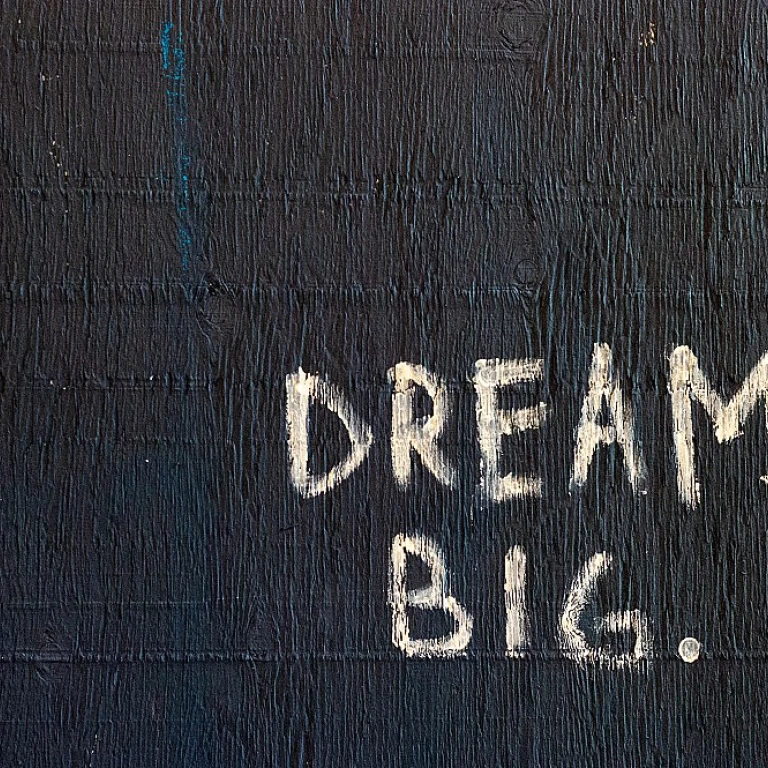Understanding the Importance of Pre-Interview Communication
Why Pre-Interview Communication Matters
In the competitive hiring game, pre-interview communication sets the stage for a successful interview process. It's the first step in establishing a good relationship between candidates and the company. Think of it as the warm-up before the main event—the job interview.
Good communication ensures that candidates come prepared, with an understanding of what the role entails and what the interview will involve. It helps them gauge whether their skills align with the job, making the interview time more productive for both them and the interviewer.
Effective pre-interview communication also reflects the company’s culture. Candidates often judge a company's values and ethos based on how they're communicated with before the interview. A seamless communication strategy can make candidates feel valued and respected—traits they'll associate with your company.
A CareerBuilder survey found that 68% of employees believe their experience during the interview process affects their decision to accept a job offer. Pre-interview touchpoints are a chance to showcase why your company is the best choice for their career.
If you’re interested in making your communication process even smoother check out our
guide on creating an exceptional candidate journey that will help you stand out in the hiring world.
Whether you're a hiring manager or a career coach advising candidates, consider how pre-interview communication can impact the perception of your company and influence a candidate's career life. By focusing on these initial interactions, you're setting a positive tone for the entire hiring process.
Crafting Clear and Concise Job Descriptions
Writing Job Descriptions That Get to the Point
When communicating with potential candidates, one of the first hurdles can be the job description. Does your description clearly spell out what you're looking for? It's time to skip the fluff and get straight to what matters. Highlight essential skills and responsibilities to ensure both the candidate and your company are on the same page.
- Focus on Responsibilities: Describe what day-to-day tasks will look like. What will they actually be doing at work?
- List Must-Have Skills: Be honest about what skills are essential and which ones are just nice to have.
- Be Transparent About the Role: Share not only the duties but also the opportunities for career growth within the position.
- Keep It Brief, But Informative: A great description doesn’t need to be a novel, but don’t leave out necessary details.
Illuminating the role through clear job descriptions is not only honest but also a sign of respect for the candidate's time. This approach is also a foundational practice in
mastering communication with job candidates.
Let's Get Personal: Make Them Feel Valued
Personalized communication can turn a candidate's experience from just another interview process into an exciting dialogue. Showing recognition of their unique abilities will help you stand out. Be human, share your experience, and importantly, relate to theirs as professionals.
- Mention Their Skills: During a phone interview or preliminary interview, reference specific skills from their resume. This shows that you've read and value their application.
- Use Their Name: It seems simple, but merely using someone's name can create warmth in communication immediately.
- Consider Their Career Goals: Bring up potential paths in your company that align with their ambitions.
Personal touches reinforce the message that your company sees them as an individual, not just another resume.
Using Tech for Better Conversations
Technology is your friend when it comes to hitting the efficiency sweet spot in candidate communication. It's about using tools to streamline the process so that you and the candidate can focus on the meaningful parts of interviews.
- Email Scheduling Tools: Tools can help coordinate meeting times without the back-and-forth.
- AI-Powered Interviewers: Some companies introduce preliminary interview questions via AI, which can assess basic compatibility.
- Communication Platforms: Unified communication tools keep everything in one place and avoid the dreaded lost email.
Getting tech to do the heavy lifting allows the human side of the process to shine through, optimizing the actual interviews for both parties.
Personalized Communication: Making Candidates Feel Valued
Creating Connections Through Personalized Communication
When it comes to the interview process, making candidates feel welcome and valued is pure gold. Personalized communication is your magic wand—it turns potential confusion into clarity and doubt into enthusiasm. It doesn't just mean addressing them by name in emails, but giving a sense that the company cares about their career journey.
Imagine receiving an email from a hiring manager, that not only mentions your skills but also highlights specific achievements listed in your resume. Now that shows they’ve actually taken the time to see who you are before even meeting you in a preliminary interview or asking you a single interview question.
Consider a scenario where a candidate had a phone interview recently. Afterward, the recruiter sends a follow-up email acknowledging the candidate’s expressed interest in the role and their impressive body language skills over the call. This kind of gesture doesn't just inform the candidate—they feel noticed and appreciated.
So, how can personalized communication be effectively implemented?
- Research and Connect: Before sending any message, take time to understand the candidate’s background, career highlights, and in some cases, even their personal interests.
- Be Human: Use language that's conversational and warm. Address concerns, clarify the job role, and connect with them on a human level. Sometimes expressing encouragement with words like, "Don’t be afraid to share your ideas," can boost candidates' confidence.
- Value Feedback: After the pre-screening or job interview, ask for feedback. This not only shows that communication is a two-way street but also sends the message that the company respects their input.
- Customize Templates: While having email templates can save a lot of time, remember that adding personal touches tailored to each candidate's journey can change how your company is seen.
Leveraging (see what I did there?) technology like email management systems can help with this process, ensuring each candidate feels like they’re more than just another name in the hiring process.
Here’s an anecdote from a career coach—she once helped a candidate who received a personalized email that directly referenced the candidate’s answers during the job interview. It left such an impression that even though they came in second in the interview process, they confidently would reapply within the same company only because they felt valued.
For more on integrating these communication strategies, consider exploring
the vital role of clear communication in candidate experience—it’s packed with insights to make your hiring process a candidate-friendly journey. Remember, a little personalization goes a long way in making candidates feel like they’re truly part of the company, right from the very start.
Leveraging Technology for Efficient Communication
Boosting Communication with Technology
In the bustling world of job interviews, technology can be your best friend. Let's face it, keeping track of every interview process can get tricky. But, with the right tools, you can streamline communication, saving time and helping both candidates and the company.
Besides crafting clear job descriptions, incorporating technology into communication ensures a smoother process. Many firms use recruitment software for pre-screening and scheduling interviews, which can be a game-changer.
Here's how technology can help:
- Automated Responses: Set up automated emails for application confirmation or interview scheduling. This ensures candidates know their application was received and keeps them informed about the next steps.
- Video Interviews: Use video conferencing tools for preliminary interviews. Not only does this save time for both parties, but it also allows the interviewer to assess the candidate's body language and communication skills.
- Online Scheduling Tools: Allow candidates to choose their interview slot through an online scheduler. This flexibility demonstrates that the company values their time and preferences, aiding in creating a positive candidate experience.
Now, don’t forget the good old phone interview. It remains a cost-effective way to assess a candidate for a specific role before face-to-face interviews. For companies and candidates alike, it’s a convenient and quick method to answer questions and understand the basics of a position.
Whether it's a phone interview or using cutting-edge software, effective communication will help you present the best version of your company. Remember, it's not just about filling a position; it's about creating a strong candidate-company connection that sets the tone for future success.
Setting Expectations: What Candidates Need to Know
What to Tell Candidates Beforehand
Imagine you're gearing up for a good ol' job interview. You'd want to come in prepared, right? Knowing what to expect helps you feel in control and confident. Now, flip that around. When you're organizing things from the company side, you gotta give candidates a heads-up on what’s going down. This will help them bring their best selves to the interview.
Start with the basics. Share the job position details once more, including any specific skills or experiences the role demands. You don't want candidates in the dark about what the job entails. It also helps align their expectations with the responsibilities and requirements.
Candidates will appreciate insights into the interview process. Tell them how long the interview will last, who they'll be speaking with, and whether it's a single interview or a set of interviews. Are they looking at a one-on-one meeting, group interview, or will it involve multiple interviewers? Also, mention the mode of the interview whether it's in-person, a phone interview, or via video.
Oh, and don’t skip on questions they should prepare for. What kind of interview questions will they face? Sample questions can help them gauge the areas they should focus on. Just be sure to communicate these to candidates before the initial sit-down. This pre screening step ensures they're not caught off guard.
And let's not forget the logistics. Share any pertinent information like the exact time, platform links for online interviews, or directions and visitor protocols for in-house meetings. This assistance in communication will help candidates avoid flubbing due to last-minute technical glitches or getting lost en route.
Finally, keep it transparent about the interviewer. Provide a brief overview of the people they’ll meet during the interview. Knowing the interviewer’s background or the relevance of their work in the company can help ease any anticipatory jitters candidates might have.
Ensuring you've set clear expectations isn't just a nicety, it's part of a solid communication that respects the candidate's time and effort. All these details will help candidates feel respected and valued, keeping any unnecessary stress at bay as they move forward to showcase their talents and, who knows, possibly land that dream job. This isn’t just about making candidates happy; it’s about setting the tone for a meaningful connection that benefits both sides of the table.
Feedback and Follow-Up: Maintaining Engagement
Keeping the Momentum Alive After the Interview
After the high stakes of the interview, maintaining the enthusiasm and engagement of your candidates is pivotal. Post-interview communication is often overlooked, yet it's crucial to setting the right tone for the rest of the hiring process.
Engagement doesn't stop the moment a candidate leaves the interview room. On the contrary, it’s a key phase where many doubts and questions might arise. From insights gathered from HR experts, maintaining clear, timely communication helps keep candidates informed and valued. This ensures they feel connected to the company they aspire to work for.
Effective Feedback as a Communication Tool
One practice companies often overlook is providing feedback. Candidates invest time and emotion into their interview process, and knowing how they performed, as well as areas for improvement, can be invaluable. A career coach might opine that detailed feedback not only aligns expectations but enhances the candidate's future job interview skills.
Acknowledge a candidate's enthusiasm and commitment, whether through a simple "thank you" or a more detailed follow-up, touching on their interview performance, body language, and response to interview questions. This helps in reinforcing the positive aspects of their candidacy and addressing any areas they can work on, should they have another chance.
Prompt Follow-Up: Keeping Candidates in the Loop
Don't leave candidates hanging after a promising job interview. Clear communication regarding next steps is essential. Whether a decision has been made or additional interviews or pre screening are required, candidates appreciate being kept in the loop. This shows respect for their time and commitment.
A helpful method is to outline the timeline and what they can expect next in the process, which might include a phone interview with another hiring manager or a more in-depth interview. This can drastically reduce anxiety and leave a positive impression of your company.
Consistency in Communication
Consistency plays a role in upholding the positive interaction you’ve established. It's about making sure communication is a two-way street. Encourage candidates to share any thoughts or concerns they might have as they await the outcome of their interview process.
Whether it’s the hiring manager directly sending personalized messages or the HR team managing communication, responding to queries promptly builds trust and fortifies the candidate's connection to your company.
In the end, don’t be afraid to communicate candidates with sample questions or updates proactively. Remember, a little feedback and assurance goes a long way in reinforcing your company's dedication to the candidate experience.







